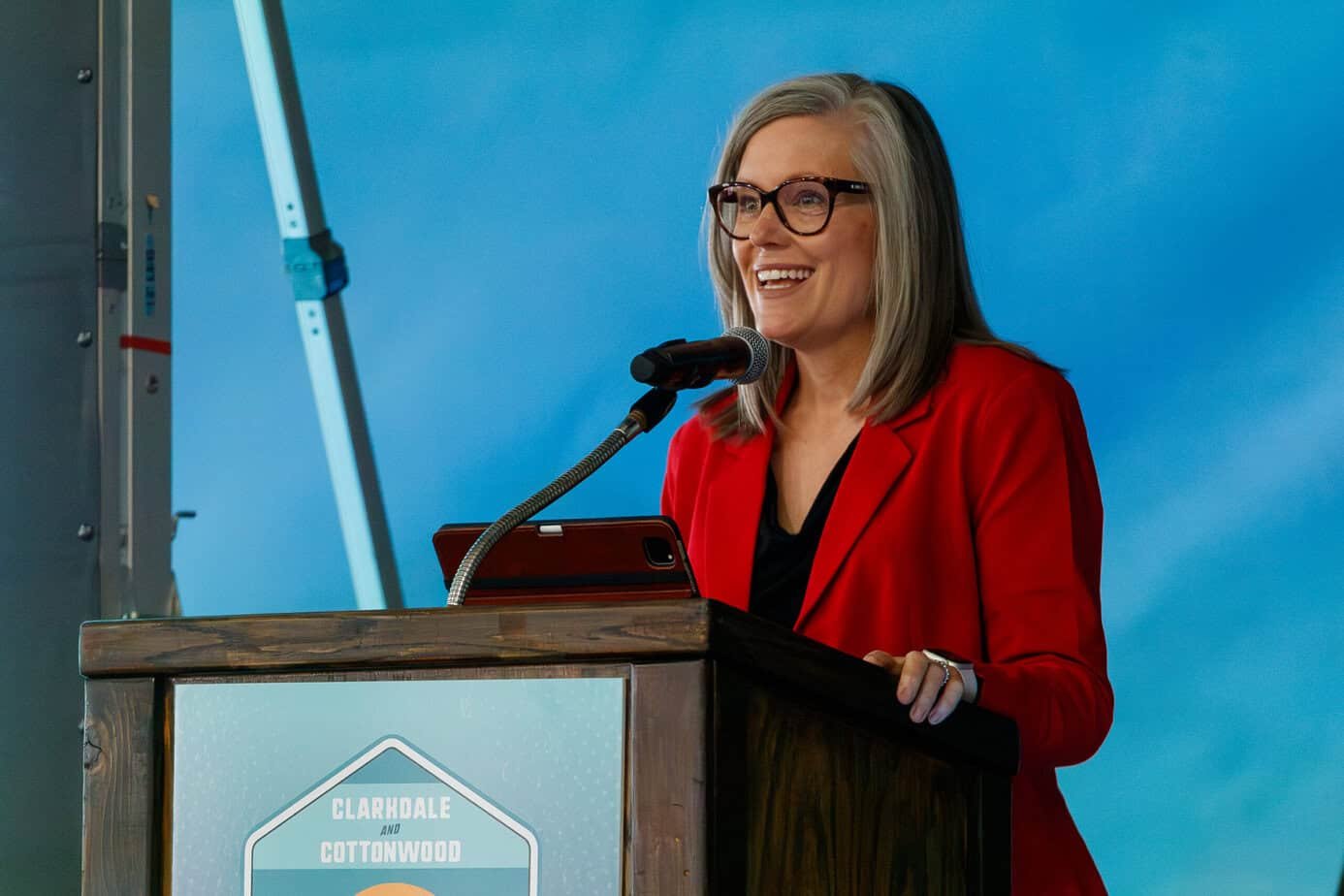Business
Arizona Governor Katie Hobbs Champions Microloans at Transformative Clarkdale Roundtable

On Thursday, August 8, Arizona Governor Katie Hobbs announced a new initiative aimed at bolstering small businesses in the state during her visit to Clarkdale. The new $5 million Arizona Microbusiness Loan Program, approved by the Arizona Legislature last year, targets businesses with five or fewer employees, offering low-interest loans of up to $50,000.
“We got this investment in last year’s budget, and we are excited for the ways it can help small businesses across the state,” Hobbs stated after attending Local First Arizona’s Rural Policy Forum at the Clark Memorial Clubhouse. She emphasized that while significant investments attract larger companies, small businesses remain the backbone of Arizona’s economy and need similar opportunities to thrive.
Local leaders echoed the governor’s sentiments. Camp Verde Deputy Town Manager Molly Davies expressed enthusiasm for the program, stating, “In economic development, there are so many components that help us to help small businesses, and this is the tool that we need.” She noted that the initiative has already benefited three local enterprises in the past 20 months.
Arizona State Representative Seth Blattman, who played a role in the program’s conception despite a previous bill failing to pass, added a personal touch to the discussion. “Manufacturing furniture is a capital-intensive industry, so I sympathize with a lot of things I heard around the table,” Blattman said, highlighting his own experience in seeking fair loans. He pointed out that many small businesses face a constant barrage of predatory loan offers, which makes this new funding mechanism crucial.
At the roundtable discussion held at Yavapai College, key stakeholders—including microbusiness owners and nonprofit leaders—discussed the program’s expected impact. A microbusiness is defined as any enterprise with fewer than five employees. The state plans to distribute the allocated funds through community development financial institutions and nonprofit lenders like Growth Partners and Native Community Capital.
Blattman underscored the dual objectives of the loan program: to stimulate local economies and to guard against exploitative lending practices. He stated, “When you’re a small business, traditional banks are not interested in you.” Many startups struggle to secure loans due to a lack of financial history, an issue that microloans aim to address.
Mary Chicoine from the Verde Valley Regional Economic Organization noted that they have successfully facilitated over $1 million in loans to more than 20 local businesses through their existing Revolving Loan Program since inception, all without defaults. The microloan initiative aims to extend such support further through its flexibility in funding.
The new program is set to remain active through 2029, offering opportunities to Arizona’s estimated 155,000 small businesses. Diego Apodaca, a food truck operator from Cottonwood and recent microloan recipient, shared his experience of finding alternative funding to turn his culinary dreams into reality.
VVREO anticipates utilizing $100,000 from the state’s microloan program, combined with matching funds from the U.S. Department of Agriculture, to support local businesses further. Current deliberations involve potential loans being presented to their board for approval within the next two months.















